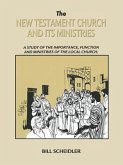The Mackenzie Valley natural gas pipeline debate included many actors. This is the first in-depth study in comparative religious ethics to examine the debate with a particular focus on the role of the Canadian churches. In 1974 twenty-seven of the world's largest oil and natural gas companies applied for permission to build a pipeline through the Mackenzie Valley to transport Alaskan and northern Canadian gas to large southern markets. Many northern native peoples opposed the proposal and called for a moratorium on major northern development projects until native land claims had been settled. The mainline Canadian Christian churches supported the call for a moratorium and, through the interchurch coalition, Project North, campaigned against the pipeline. However, some native peoples supported the proposal to build the pipeline, and many of the pipeline's proponents were members of churches that called for a moratorium on the project. This case study in comparative religious ethics, though written from a pro-moratorium stand, attempts to clarify the debate. Conflicting responses to the pipeline proposal are assessed in relation to "hard facts" concerning the need for northern gas in the South, social-scientific findings regarding the impact of the pipeline on native communities, the rights of native peoples to participate in decisions affecting their lives, assumptions about the way of life of non-native people in the South and the role of religious convictions in public choices. This thoroughly researched study reveals the inner workings and influences of the Canadian churches involved and illustrates their commitment on behalf of the northern natives opposed to the project.
Hinweis: Dieser Artikel kann nur an eine deutsche Lieferadresse ausgeliefert werden.
Hinweis: Dieser Artikel kann nur an eine deutsche Lieferadresse ausgeliefert werden.








